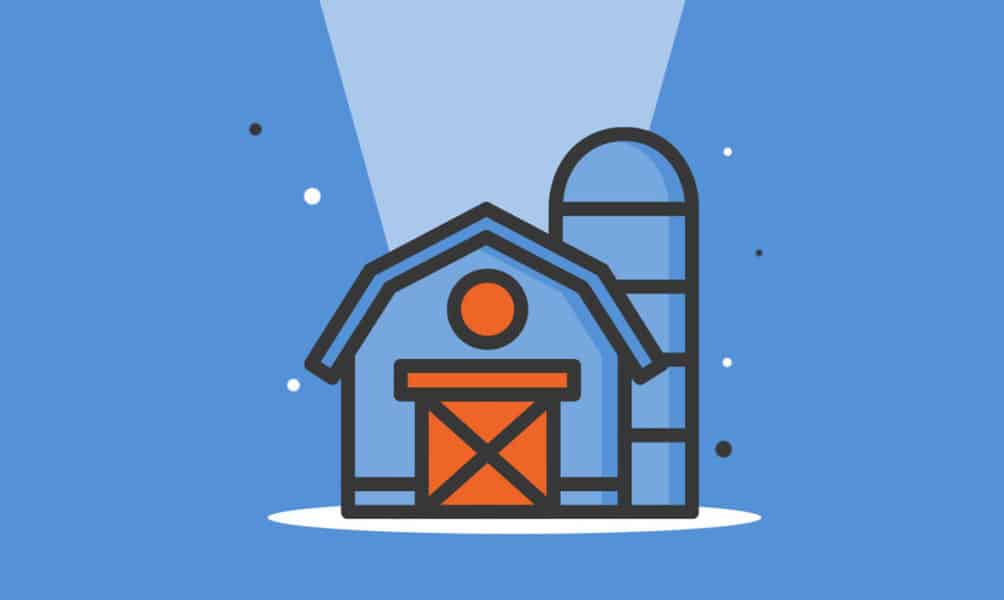Orlando Hydroponics, under the guidance of Joe Nash, has emerged as a leader in the realm of hydroponic solutions, combining innovation andenvironme ...
How a Retired Veteran Built Kern County’s First Hydroponic Farm
Written by: Carolyn Young
Carolyn Young is a business writer who focuses on entrepreneurial concepts and the business formation. She has over 25 years of experience in business roles, and has authored several entrepreneurship textbooks.
Published on September 6, 2024

Gerry Mateo, a retired veteran, found an unexpected opportunity during the pandemic with the creation of FilAm Vets Hydroponics Farm. As the first hydroponic farm of its kind in Kern County, California, FilAm Vets has established a commercial venture that provides fresh, pesticide-free vegetables in a controlled environment.
In this interview, Gerry shares his journey from turning a passion into a business, how hydroponics stands apart from traditional farming, and what it takes to succeed in this evolving industry.
Inspiration Behind the Farm
SBS – What inspired you to start a hydroponic farm?
Gerry – I started this during the pandemic. The world stopped doing anything, and we were stranded in our homes. I, as a disabled veteran, had nothing to do, so I had to look for something to keep my mind occupied; otherwise, I’d go crazy. I wasn’t used to not doing anything. I started researching, watching YouTube, and reading different magazines, and that’s when I discovered hydroponic farming. I started watching other people on YouTube. I took a few webinar classes at home and started buying the needed equipment.
Initially, it was just a hobby and a way for me and my family to get extra food. I started growing leafy vegetables — lettuce, spinach, kale, arugula, etc. First, it’s healthy. Second, it keeps my mind busy. I have some anxiety and depression that I suffered from throughout my military career. I was in the military for almost 28 years, and when I got out, I needed something to do to keep my mind busy and stay out of trouble. You keep your mind busy doing good stuff like this. On top of that, you keep your body healthy.
Last year, my hobby became a small business, and I now earn money by selling my produce.
Overcoming Initial Challenges
SBS – What initial challenges did you face, and how did you overcome them? Was it difficult to turn a hobby into a business?
Gerry – I have a business degree, and I wanted to open my own business when I got out of the military. I tried different types of businesses until I came upon this. When I started selling my produce, people saw it as a different, healthier, fresh, natural food with no chemicals. It just clicked into place. Now, everybody looks for me in a farmers’ market, and I have a couple of restaurants I sell to.
Starting a business wasn’t hard because I had the experience. I registered my company in my current county in California. Then, I expanded that through the help of Veterans Assistance and SBA. After two years, it’s running smoothly. I was able to make extra income for my family, which I need because I have many kids.
Behind me, on my wall, I have my hydroponic certificate, military certificates, awards, and medals. I put them on the wall to remember my days, my times in the military, and the good stuff that I did. We have a powerful mind, and I always tell my kids that you can do anything if you put your mind to it. This is an example. I never knew I was going to be farming. I had a lot of education in the military, but I chose to do this because it just helped me and my family. I have a lot of friends who didn’t make it for different reasons after leaving our military. It was tough, but we must find a way to heal ourselves.
I help veterans in the community and donate to homeless shelters. As long as I can help, it’s good for me. Many veterans want to start farming like this, so I give them the instructions and counsel them. Everyone is welcome to come here and look at my stuff, and if they need my help, I will help them.
Quality Control
SBS – How do you maintain the quality of your produce?
Gerry – The main things are cleanliness and health. Like I said, I don’t use chemicals or anything bad for your body. I also buy quality seeds. It’s more expensive, but it’s better because the better quality seeds, the better produce you have. I maintain the cleanliness and the quality of the products. People like it. The chefs that I delivered love it. They say they can’t find that in the grocery store. This is true because the vegetables are all dry in the grocery stores. I delivered my produce fresh and alive, with roots. I also invite chefs to come here and pick the vegetables they like. My habit in life is always to do the right thing. If you do it halfway, you have a problem because people will see that.
Hydroponics vs. Traditional Farming
SBS – What do you think of hydroponics vs. traditional farming?
Gerry – First of all, traditional farming involves a lot of acres of land, a lot of water, a lot of maintenance, and a lot of logistics. Hydroponic farming is much simpler. I’m inside my indoor facility, and I don’t use soil. That’s number one. All I need is water with nutrients. I don’t even use much water (five gallons of water recycled through the process).
Hydroponics is continuous because it’s contained, and the environment is controlled. If it’s hot, I have an air conditioner to turn on. If it’s cold, I have a heater. Also, I can go elsewhere and still watch and control everything through my phone. I can control the weather, the pH of water, and the nutrients.
The Secret to Success
SBS – What is the secret to your success? Why do people like buying from you?
Gerry – As I said, I first introduce myself as an educated veteran with a lot of management experience. Then, I introduce them to the hydroponic farming technique and show them that this is the freshest vegetable you’ll find. It only uses water and nutrients. There are no pesticides or chemicals. It’s a controlled environment with no bacteria. Outside, many pests can ruin everything. When I show people what I have and explain what hydroponics farming is, they immediately say they want some. Many of them come and see me every weekend at the farmers’ market, and many restaurants order from me. It’s a win-win situation because people like clean, healthy, nutritious food.
Staying Competitive
SBS – How do you stay competitive in the market?
Gerry – Believe it or not, but here in our county, I’m the only one doing hydroponic farming. That’s a win-win for me. If you do your research, hydroponics is becoming big because of the different positive aspects of it. Elon Musk, the richest guy in the world, is doing a lot of research on bringing hydroponics to Mars. He’s looking into putting farming equipment into 40-foot containers. That’s also my future thing. In 50 years, there will be much less food in the world, but when that happens, I’ll be ready.
Distribution Strategy
SBS – How do you handle distribution to the farmers’ markets and restaurants?
Gerry – Delivering to restaurants is easy because I have a truck. I schedule a once-a-week delivery. The farmers’ market is a bit harder because you have to go over there early in the morning and set up your booth. It’s like a presentation for the people. You stay there for about four hours, so that’s six to eight hours spent outdoors.
Sometimes, what I make when I deliver to a restaurant for 30 minutes is what I make for eight hours at a farmers’ market, but I started in the farmers’ market so people can get to know me. The only way for people to get to know you is to go out there and show your products.
I no longer have to go to farmers’ markets because I have all these restaurants to deliver to, which is great. However, those people were looking for me in the farmers’ market, so I told them to come to my house, go to my farm in the backyard, and get the produce.
You have to start somehow. Now, I’m planning to ensure we have more produce because more people want it, and I don’t have enough. I plan to buy those 40-foot containers, park them in my backyard, and turn them into the farm. The more, the better.
Work-Life Balance
SBS – How do you balance your professional and personal life?
Gerry – That’s a good question. I’m retired. When I’m home, I have nothing to do. Now, I also have children who go to school. It’s about time management. In the morning, I drop all my kids to school, and when I get back, I do my farming for one, two, or three hours, whatever it takes. After that, I pick up all my kids in the afternoon. My wife works half a day as a teacher, but everything works out.
Advice for Aspiring Hydroponic Farmers
SBS – What advice would you give anyone who wants to start a hydroponic farm?
Gerry – Overall, it’s all trial and error. In the beginning, you’ll make mistakes like with anything else. But do not give up. Just keep doing it. The first plants I planted all died, but I didn’t give up. I tried it again and again until I perfected it. Once you learn how to do things, consider upgrading your system. There are different types of hydroponics, but you can start slow, small, and then upgrade more or to a different style of farming.
If you want to start something like this, do your research first. There’s a lot of stuff on YouTube that you can watch. Also, get some classes if you want. Then, start small. It took me four years to get to this level. Initially, I did six or twelve ladders. Many of my friends and family members were surprised and asked me how I did it. I told them the same things I told you — start small, learn it, make mistakes, fix them, and then move on.
Subscribe to Our Newsletter
and gain insider access to cutting-edge business insights and trends.
Featured Resources

Joe Nash on Advancements in Hydroponic Gardening Solutions
Published on March 7, 2024
Read Now

How to Start a Farm: Beginning Farmers and Ranchers
Published on March 18, 2022
Here is what you need to consider when starting yourfarm: Type of farming — Determine what type of farming interests you and suits your land. ...
Read Now

From Spores to Sales: Starting a Mushroom Farm
Published on January 27, 2022
Consider these crucial factors when launching your mushroomfarm: Location — Choose a suitable location for your mushroom farm. Considerfactor ...
Read Now
Comments